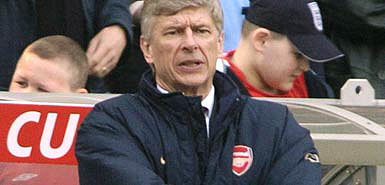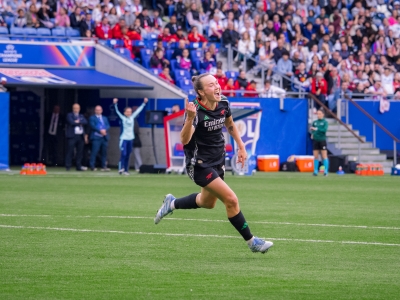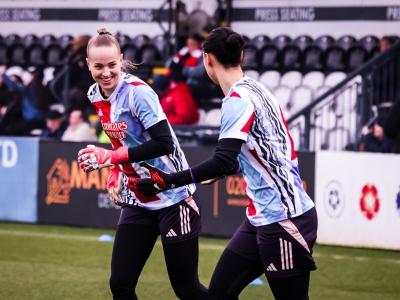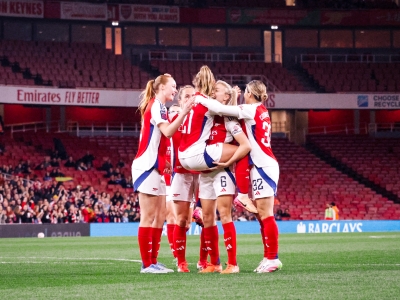I don’t believe all negativity about Arsenal being in some major unrecoverable free-fall or that Wenger may have become a liability. Arsenal’s problems, in my view, are much simpler than that. It is true that Wenger’s stubbornness is part of the problem but it is even more true that Wenger is a most important part of the solution.
In my view, his biggest challenge right now (part of the solution) is keeping the important members of the team for next season even if Arsenal finish below fourth place. I will come back to this point – who is important and who isn’t should not be taken at face value.
The second challenge is finishing fourth. The top two are interlinked because if a player doesn’t know he will be here next year or is planning to leave, then he doesn’t care where we finish. Then there is the third challenge of coping with football as it is NOW not the dream of what it can be.
If I were on the Arsenal board, I would list my priorities to the manager in that order. Wenger has been used to giving targets to the board about his ambitions. The stadium he wanted, the training ground he wanted and the players he wanted. Now it’s time for him and his team to get some targets from the board and the fans.
It is true that Arsène has been leading a revolution in football. But that revolution was over and another one started without Arsenal being party to it. Arsenal continued to believe they were leading a revolution and now they are being overtaken by the next revolution.
Before we go any further, let’s make a few facts clear. Arsène Wenger is Arsenal’s most successful manager of all time and is one the Premiership’s most successful managers.
He’s been manager of the year three times and his team has competed in the league for top or second place or been in a major final every single year since he joined Arsenal apart from this year (if you discount the Carling Cup final). We are not talking about some dumb cowboy here, we are talking about one of the best coaches in the world.
In 1996 Wenger came to Arsenal and started his revolution – or at least had a place where his revolution could be put on the world stage. His revolution was based on movement, pace and good technique. It was one of the first football philosophies that ignored the opposition in game planning. It is based on the controversial view that if you play better, you will win.
Youth became very important in this philosophy. Youth offered pace and a blank canvas to teach the new skills and mentality required for this kind of game. The evidence from the players whose careers started with and continued with this philosophy shows that it can produce great players. Patrick Vieira, Thierry Henry, Freddie Ljungberg and Lauren are the players that I know grew up almost exclusively under Wenger. They have all been world class players at various points but they have not had great longevity. Youth is crucial in Wenger’s game and it perhaps no surprise that Wenger has a great reluctance in buying experienced players.
By 1998, Wenger had won the league and the FA Cup. By 1998, many managers in Europe and England were copying elements of Arsène’s philosophy. In 1998, France won the World Cup with an Arsenal format and by 1999 midfielders that tackled and passed in successive moves had become the most expensive players in the world (overtaking strikers).
Manchester United bought Juan Veron in 2001 as Alex Ferguson himself wanted to build an Arsenal and all midfielders that looked half decent in the late 90s to the early noughties like Djemba-Djemba, Salif Diao, Aliou Cisse were over-hyped and ended up in the Premiership.
That was the revolution that Wenger started but there were already signs that teams were going to react defensively if they could not afford to buy the talent to do it offensively. It’s the Yin Yang that exists in every system.
The Italians and the Spanish realised the importance of disrupting the midfield game without being sent off knowing that in a counter-attacking system, all you need to do is to cause a one-second delay and the move is off. A nudge on Vieira delays the ball – it is a foul but it is not enough to get you even a yellow – but there will be no Arsenal counter-attack. The Italians had a long tradition of this in their football and it was deployed successfully against Arsenal by Spanish and Italian opponents in the Champions League.
As the offensive revolution got stronger in Real Madrid, Barcelona, Arsenal and even at Manchester United, the defensive compact revolution – the reaction – got stronger too in order to cope. By 2003, Porto had won the Champions League. In 2004 Liverpool had reached the Champions League final through the same defensive discipline and won it (mainly through Milan complacency and nothing-to-lose attacking).
In 2004, Greece won the European Championship by keeping-it-tight. The defensive fightback had taken the upper hand. Arsenal won the league for the last time in 2004. The next season, Arsenal were to find teams were much wiser to pace and movement and Arsenal has not managed to find an answer yet. Neither has Barcelona or Real Madrid.
In the last eight of the Champions League this year, only Manchester United and Valencia seem to have an inherently attacking format – and not even to the degree that Barcelona has for example. In the Premiership, attack-minded teams like Fulham, Manchester United, Arsenal, West Ham and Reading are not impressively represented in the table. By attack-minded teams, I mean managers who will play two strikers and who will try to score from open play from the first minute and will still try to pass the ball at 2-0 down.
Manchester United provide an interesting lesson for Arsenal. They are a full-out attacking team that has a good defence and a good midfield – even though neither their defence nor midfield are an exception in any way. Manchester United do not have a Makelele-type player but they have compensated for that by attacking with the full complement of the team on every opportunity.
The lesson that Manchester United provide is that if you are going to play attacking football, you must have:
All six players in front of the defence and even the wing backs have to be excellent on the ball. You have one sloppy trainee there and counter attacks will breakdown.
You must have absolute commitment and fighting spirit. Your advantage comes from winning the ball and moving it very quickly so you must fight to win it and fight to bulldoze your way through after winning it.







